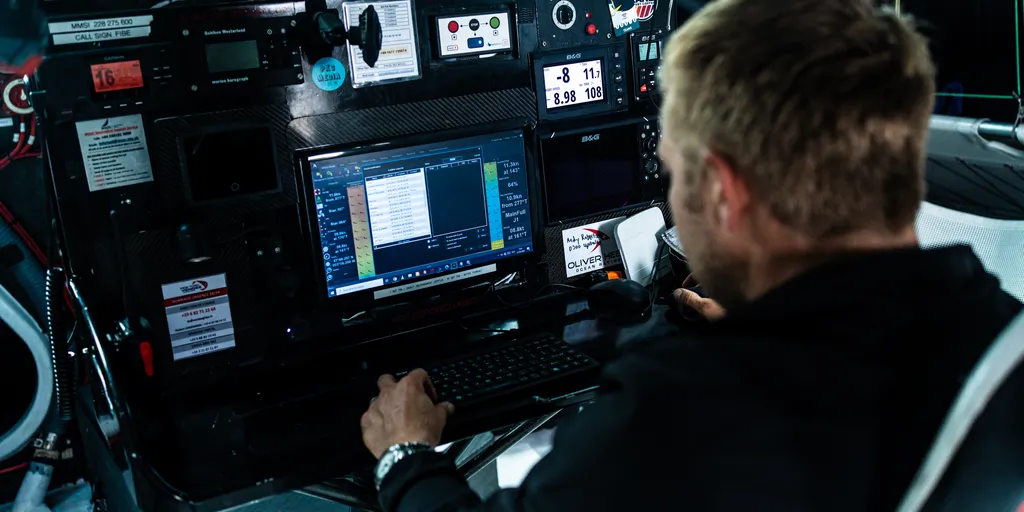Boats packed with sensors
IMOCAs are amazing pieces of technology, all working in harmony. They sail at more than 30 knots, or about 60 km/h in a rough sea, they hurtle down the long swells, we get used to the infernal noises up to 100 db. An alarm sounds, which one is it? Camera, hull, mast, pilot, keel, ice? On these Vendée Globe race boats there are all kinds of sensors, empirical measures of tension , pressure, traction, shock or temperature, and then there are wind, heel or speed sensors that have existed for a long time. A sensor transforms a physical quantity into an electrical signal.
Humans, too, are ultra-sophisticated systems! With their own biological "sensors" (such as sight, balance or proprioception), they detect, analyze and react to their environment with a speed and adaptability that computers still struggle to match. We thought it would be fun to compare some of the sensors mounted on these modern machines and the sensors embedded in the human body.
For example, the boat has a measuring gauge to know the amount of fuel in the tank or an ammeter to know the battery charge. Humans have viscero-sensors that give the sensation of how full the bladder is or the idea that the stomach feels empty.
Some advantages are inherently towards the human machine. The brain, for example, can adapt and invent. It rarely breaks down but can be paralyzed by stress. Another advantage for humans is the speed of reaction, in humans it does not always go through the brain but sometimes only through the spinal cord, which allows you to remove your hand in the event of a burn in a few hundredths of a second, whereas if a multihull tilts, it takes two to three seconds before the sheet is automatically released to recover if there is still time.
The skipper is at the heart of performance
In the extreme conditions of the Vendée Globe, the human body is subjected to intense demands: sleep deprivation, cold, wet, damp humidity, and a noise level that can reach 100 decibels in a boat going at full speed. All of these factors put a strain on the sailor's physical and mental abilities.
The medical teams, in collaboration with the skippers, have developed protocols to monitor their health. The diagnosis can include telemedicine exchanges or the analysis of photos sent via satellite connections. Stress management, injury prevention and sleep optimization have become priorities to maximize performance at sea.
A stressed, tired or injured skipper can make mistakes, while a skipper in full possession of his mental and physical resources will know how to make the most of his boat's capabilities.
An integrated vision of performance
Ocean racing is evolving towards a global approach to performance where the skipper's health is monitored as much as the structure of their boat is. Coaches now integrate physiological and psychological aspects into their training, combining medical advances, technological innovations and human experience. Thus, in the Vendée Globe, the quest for performance no longer relies solely on the boat but also on the resilience, concentration and well-being of the skipper, the true "brain" of this complex machine. A revolution that places the human being at the heart of the extraordinary adventure!
Doctor Yves Lambert for AMCAL



